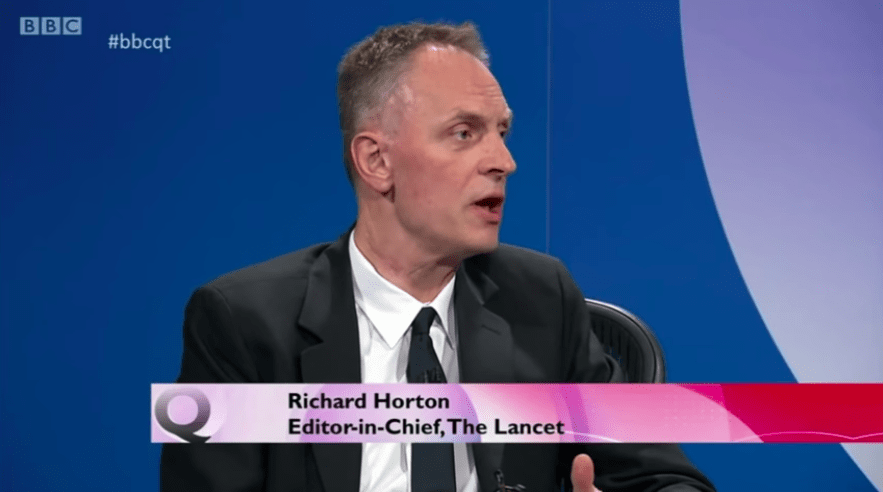Doctors have always been political. Medical school is often a cradle of social activism, driven by a syllabus underlining health inequalities and the cultural aspects of disease. Some medics inevitably take up politics: Che Guevara, Salvador Allende and Bashar al-Assad are just a few (notorious) examples. But there are plenty of others, and this crossover between medicine and politics highlights how the study of medicine can easily influence ideology. A different challenge posed, however, is when ideology begins to influence medical policy, corrupting medical decisions. This can be particularly problematic in the field of medical publishing.
Medicine relies on the integrity of up-to-date published scientific evidence to find the right treatment for a particular disease. Research that is published in medical journals is differentiated from unpublished research by the process of peer-review. Peer-review involves assessing the quality and validity of the research by experts in the field prior to acceptance or rejection for publication. The danger of relying on research that is not peer-reviewed was recently demonstrated in our Government’s embrace of the Imperial College model to navigate towards lockdown, a model that many experts feel, in retrospect, had serious shortcomings.
From my experience both publishing in, and reviewing for, medical journals, the peer-review process is generally both fair and robust. However, there are instances in which papers based on erroneous data analysis or unethical research practices have slipped through the net. Prompt retraction of such published material usually follows.
Last month, the Lancet, one of the world’s oldest and most prestigious medical journals was forced to retract a study criticising the drug hydroxychloroquine, a drug famously endorsed by president Trump. The data the authors used to draw their conclusions was not subject to the scrutiny a reputed journal would exercise for such an important and contentious topic. Before its retraction following concerns about the datasets used, the conclusions of the paper had been seized upon by the World Health Organisation, to justify halting further studies into the drug. In isolation, the publication and subsequent retraction would seem incidental, but in the context of a journal whose editor has openly stated that ‘publishing has a special responsibility to be political’, the incident appears less straightforward.
Richard Horton became editor of the Lancet at the dawn of his medical career when many editors of prestigious journals take the helm in the twilight of theirs. Although he is very charismatic and driven, the criticisms levelled upon his editorship involve his decision-making in accepting flawed articles and his political views filtering into the Lancet’s editorials.
The most high-profile instance of this perceived flawed decision-making in the Lancet was the publication (and later retraction) of the MMR vaccine paper in 1998 linking the vaccine to inflammation of the bowel and autism in children. Although there had been a considerable delay of 12 years between publication and retraction, it is not fair to suggest any political or pernicious intent on Horton’s behalf.
Instead, this seems more likely to be a case of an editor’s resolute defence of a paper in the face of considerable external pressure; a premature retraction of which, without evidence of scientific misconduct, would have amounted to scientific censorship.
Where there is some legitimate criticism, however, is concerning political opinions furtively finding their way into the pages of the Lancet, usually under the thinly-veiled guise of global health inequalities. These have included publishing opinion pieces about the Arab-Israeli conflict, Kashmir’s autonomy and the Iraq war. Although many would find the concerns expressed in the pieces to be legitimate, it is questionable whether these political pieces are really appropriate for the pages of a scientific journal and for the interests of scientific neutrality.
The editorial of the Lancet reserves its most ferocious political criticisms for president Trump. These range from his pre-inauguration manifesto, to his selection of Supreme Court judges and even attacks on his personal health. In May 2020, the Lancet highlighted the alleged failures of the Trump administration during the Covid-19 pandemic and effectively asked the American people to vote for an alternative. Although America’s response to the pandemic has been far from perfect, it seems unfair to lay the blame squarely at the feet of the president, given that control and responsibility of state lockdowns and healthcare resource utilisation rests with individual state governors. Such an unhealthy obsession for a political leader only fuels speculation that the retracted hydroxychloroquine article was published in the context of political partisanship rather than simply due to an error in the peer-review process. Of course this might not be the case. But the problem with playing politics is that it makes it easy for critics to question your intentions.
But it isn’t just when it comes to Trump that the Lancet appears to have blurred the line between science and politics. Perhaps the Lancet’s most bizarre endeavour under Horton’s watch has been publishing a piece sympathetic to the fanatical climate change group, Extinction Rebellion. It is difficult to comprehend how promoting such an overtly political cause in a reputed scientific journal can ever be justified. However, far from an isolated occurrence, it may be viewed as the culmination of gradual steps to exploit the Lancet’s medical prestige and mould it into an influential voice for promoting a certain type of political ideology.
It should be said that such political activism, as encountered in the Lancet’s editorials, is not reflective of the journal as a whole which remains a benchmark in scientific excellence. Nor is it reflective of other medical publications. The vast majority of journals adhere strictly to publishing material that is based solely on its scientific merit and publishing commissioned editorials by experts commenting on important studies. This scientific objectivity, free from political influence, must be protected as we rely on it to make the best possible decisions for our patients.
Politicisation of medicine risks undermining the trust the public have in the profession, and even worse, risks the exploitation of people in the pursuit of ulterior motives.






Comments